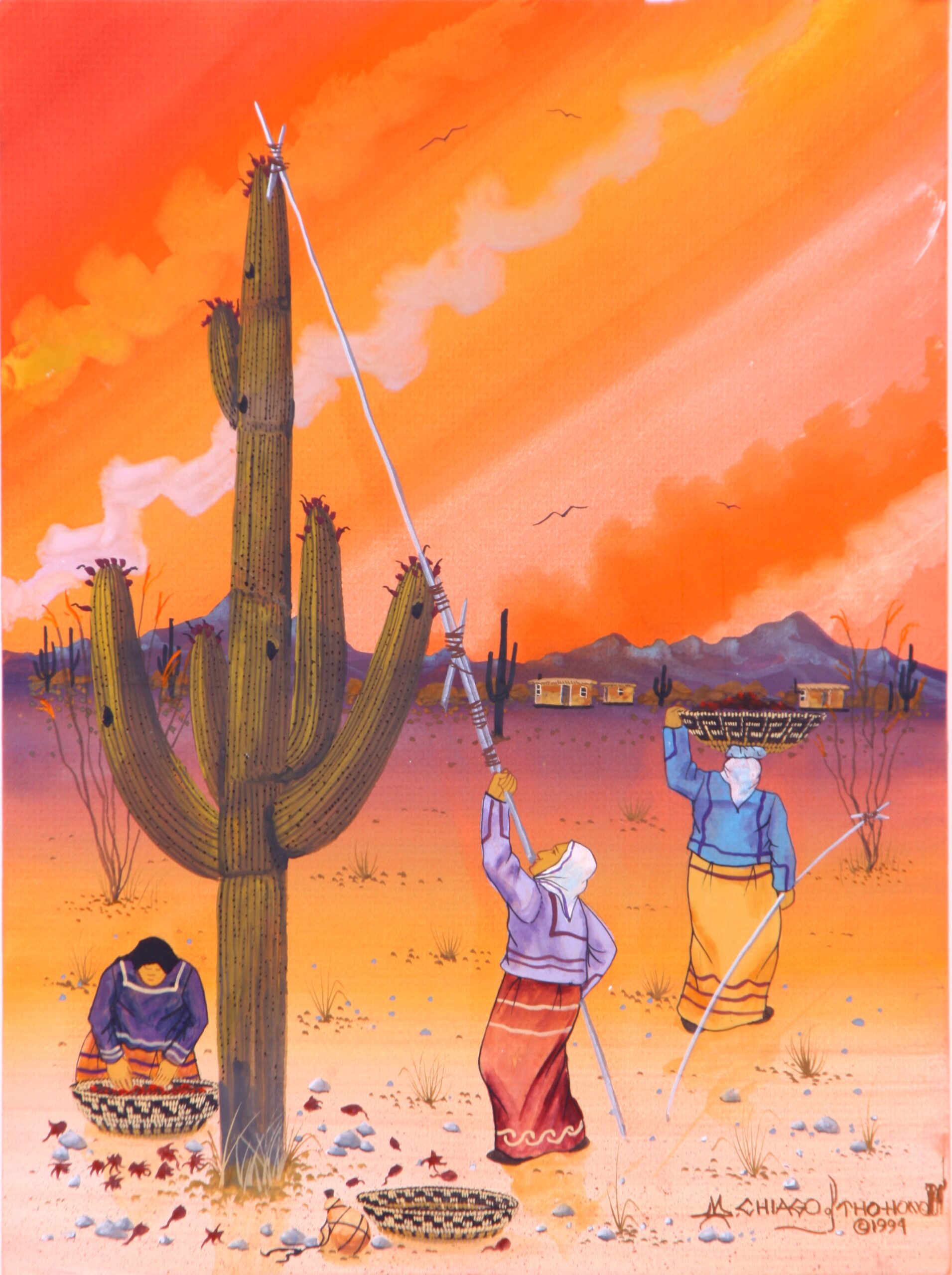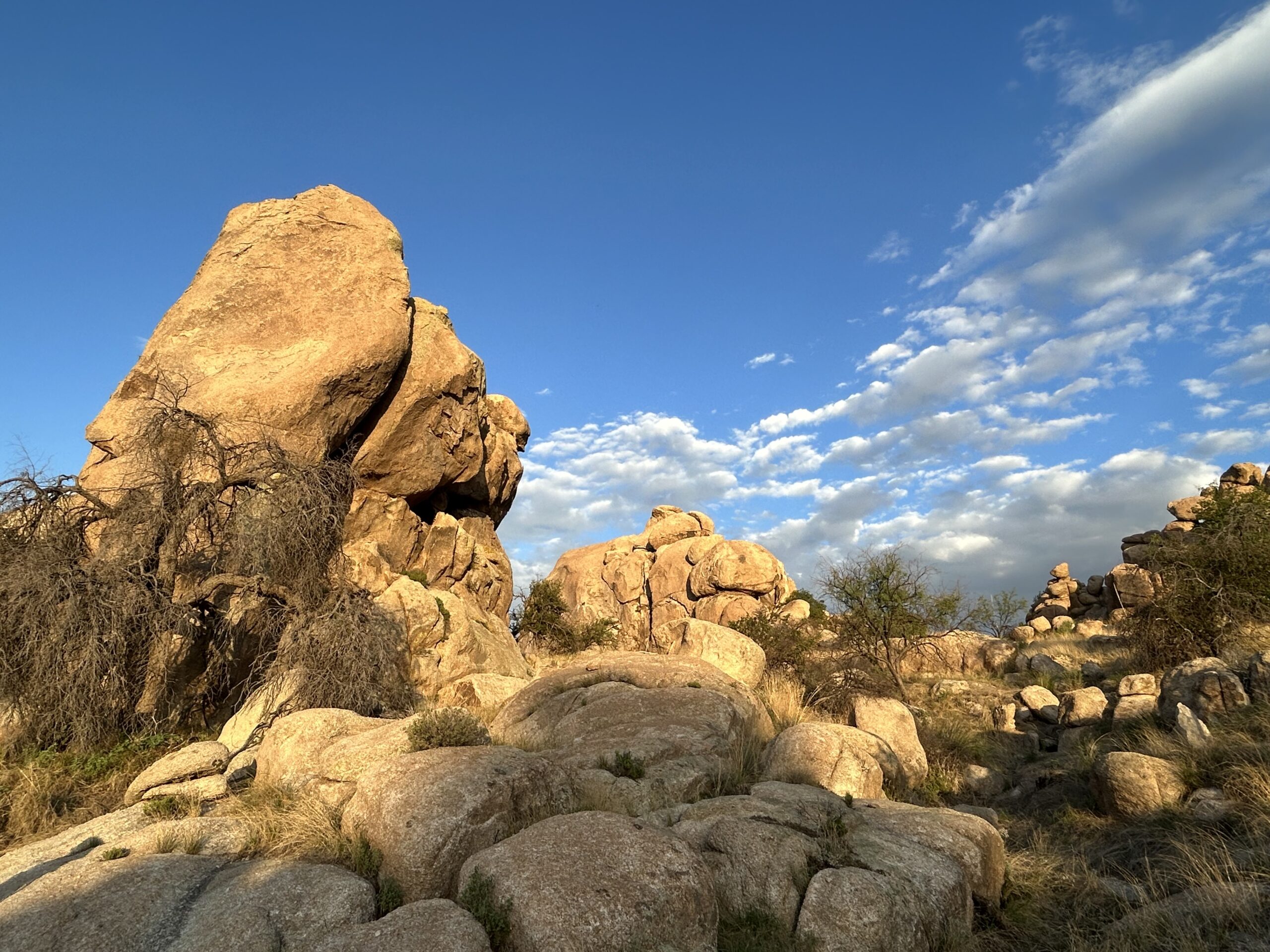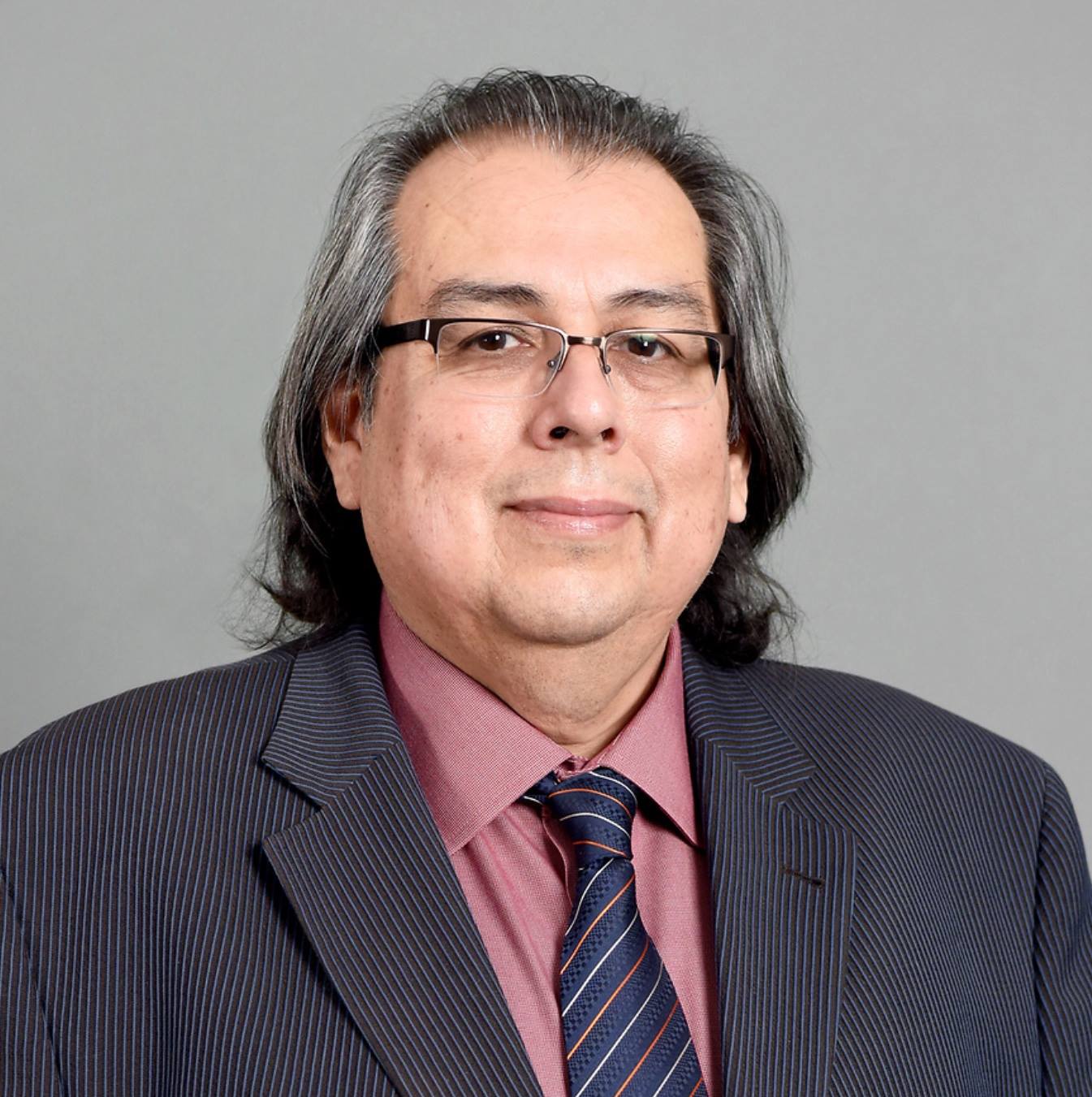Free Event
Continue readingTexas Canyon Nature Preserve Trail System Grand Opening
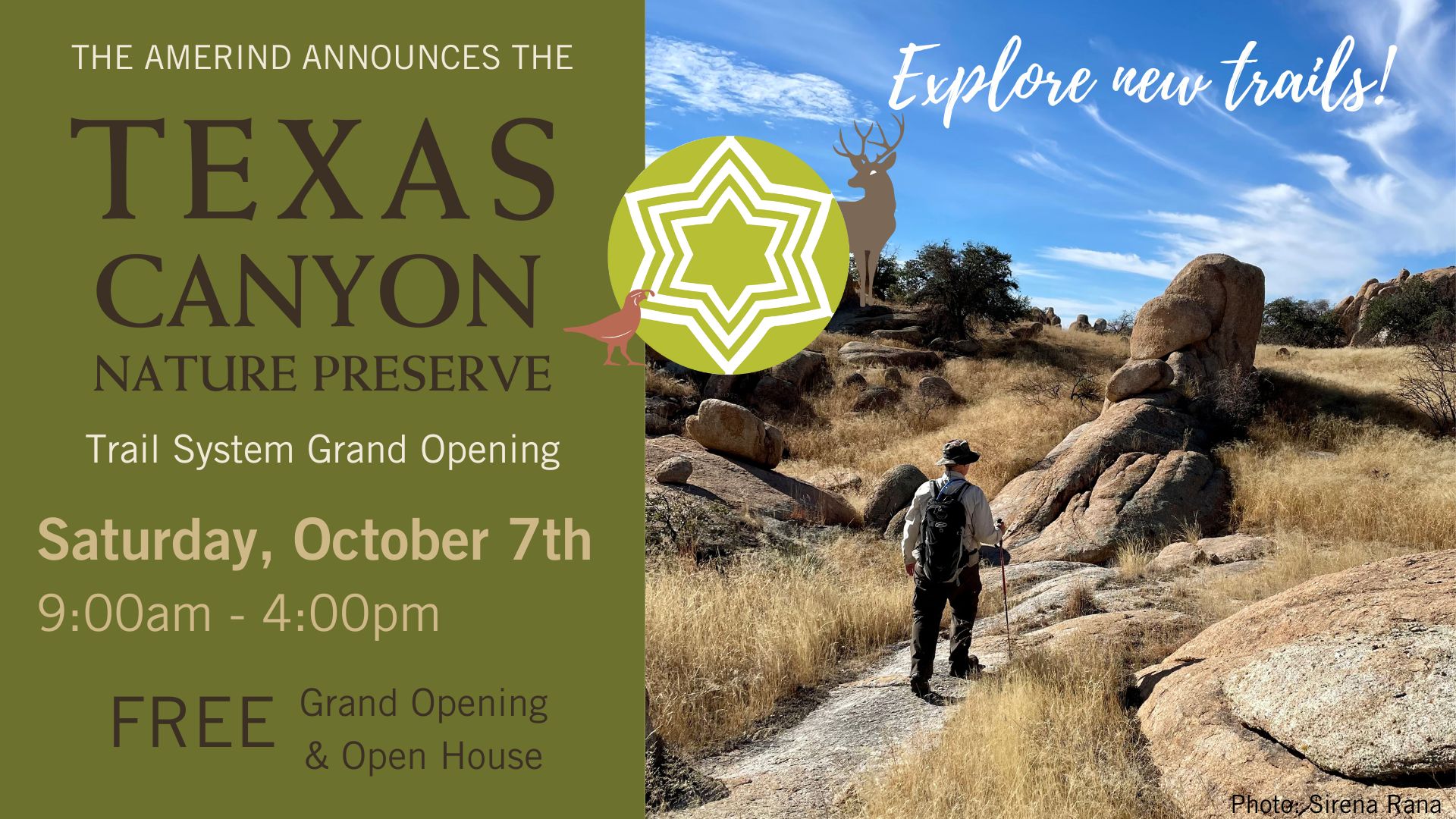
Saturday, October 7, 2023
9:00am – 4:00pm
Discover Amerind’s Nature Preserve! Join us for a celebration of Amerind’s newest attraction-the Texas Canyon Nature Preserve Trails. With 8 miles of new self-guided walking trails, you can experience the iconic and captivating landscape of Texas Canyon as never before.
Trail System Grand Opening & Amerind Museum Open House
9:00am Ribbon cutting & Opening remarks at the Amerind main picnic area
10:00am, 11:30am, 1:00pm- Expert talks highlighting Texas Canyon’s natural resources including ethnobotany, birds, and plant life with Jesus Garcia (Mission Gardens), Jefford Francisco (Tohono O’odham Nation Tribal Historic Preservation Office), and Dr. Lyn Loveless (Botany professor emerita College of Wooster)
Guided tours of the Amerind Museum with Associate Curator Dr. Maria M. Martinez
Tours of the Amerind founders’ home with Fulton family great-grandson Willie Adams
Tractor-pulled scenic wagon rides with Amerind staff
Grab a bite
All Day Explore the new trails!
Amerind Free Online Talk: Arizona’s Creation Story: Treaties and Executive Orders Regarding Native Nations and the Arizona Territory from 1846-1912 with Millicent Michelle Pepion, PhD
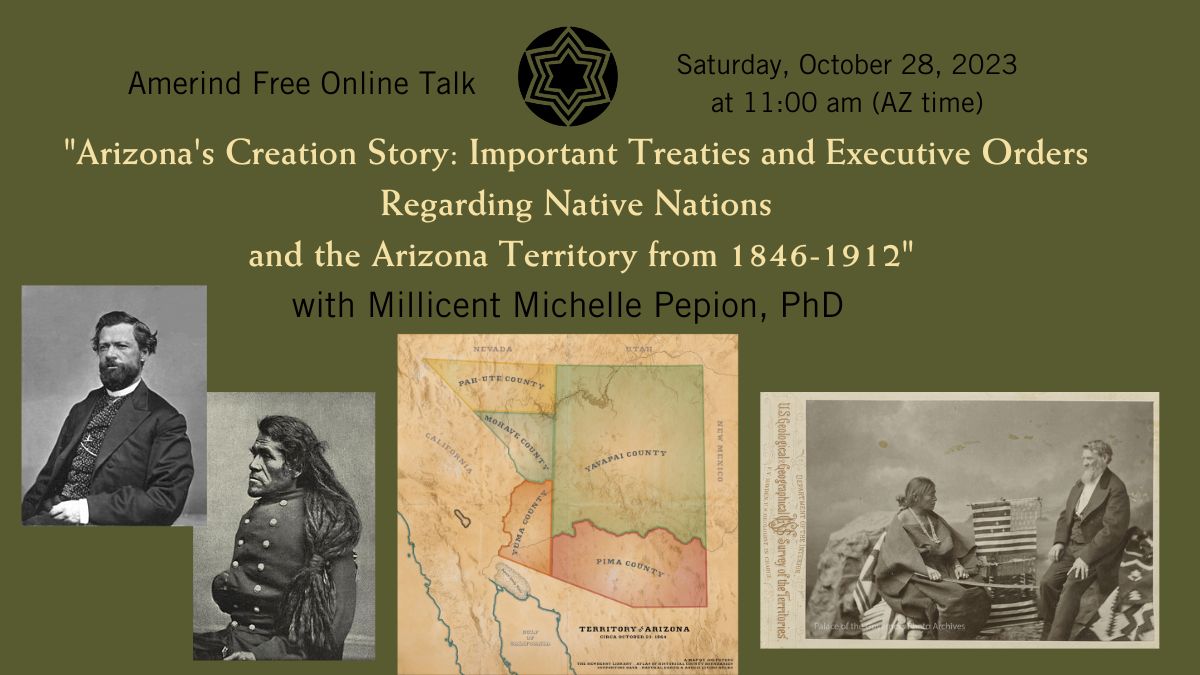
Amerind Free Online Lecture
Arizona’s Creation Story: Important Treaties and Executive Orders Regarding Native Nations and the Arizona Territory from 1846-1912
with Millicent Michelle Pepion, PhD
Saturday, October 28, 2023, 11:00 am – Arizona Time
Navajo elders say we exist in the “Fourth World,” the glittering world. In this world, we were given all of the support we needed to sustain life within the boundaries of four sacred mountains. For the Mojave people of the Colorado River Indian Tribes, life began with Mvto at Spirit Mountain. For O’odham peoples, whose traditional territory covered much of southern Arizona and northern Mexico, the epicenter of life lies in the Baboquivari Mountains where, in a cave at the base, resides their Creator, I’itoi. As for the Havasu Baaja, the People of the Blue Green Waters, what is now considered the Grand Canyon National Park also served as the womb for their people’s existence. This talk will focus on the creation stories of these four nations in comparison to the Creation Story of the State of Arizona. Much of the history shared involves the transfer of ownership from Mexico by way of the Gadsden Purchase, along with agreements, treaties, and Executive Orders signed between the Navajo, Mohave, O’odham, and Havasupai peoples, and what we now consider early Arizona pioneers such as Kit Karson, Charles Poston, Jedidiah Smith, and Rutherford B. Hayes, all which played a part in the creation of America’s last contiguous state signed into the Union.
Dr. Millicent Michelle Pepion is Bitter Water Clan born for the Blackfeet Nation. She currently resides in Tucson where she earned a Ph.D. in American Indian Studies from The University of Arizona. Her dissertation research draws connections between U.S. Census data for Native populations and Native Voter Suppression in Arizona. Dr. Pepion’s survey included an overview of all 22 Native Nations in Arizona in comparison to county and state statistics regarding history, land, law, and representation. However, her expertise does not end there. Through various work, Dr. Pepion has developed courses, workshops and presentations that span topics such as Federal Indian Law and Policy, Sovereignty, Native and Western Views on Philosophy, Protection of Sacred Places, Introduction to Navajo Literacy and Culture, Positive Indian Parenting, Traditional Indian Medicine, Indigenous Methodologies, and Writing in Two Worlds. Other degrees include: A.A. in Liberal Arts (Haskell Indian Nations University, 2012), B.S. in Liberal Studies (Arizona State University, 2014), and M.S. in Family and Human Development (Arizona State University, 2016). Dr. Pepion is a 2012 Clinton Global Initiative University Commitment Maker and the recipient of the Cal Seciwa Memorial Scholarship (ASU, 2015), the Heard Museum Eagle Spirit Award (ASU, 2016), and the Margaret Susseman Memorial Scholarship (UA, 2017-2020).
To register for this free online event, visit: https://bit.ly/AmerindOnline10282023
Free Online Lecture – The Origin of Our Extinction: The 1851 Yellow Fever Epidemic and the Hia Ced O’odham with David Martinez, PhD
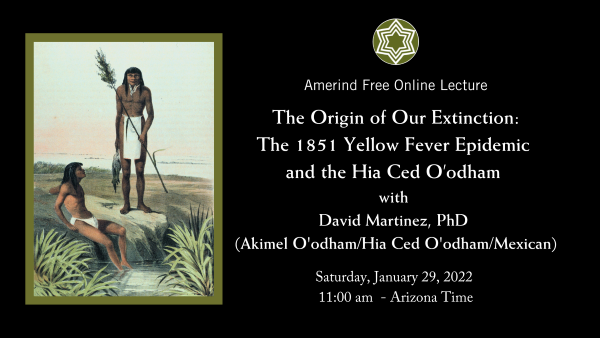
Amerind Free Online Lecture
The Origin of Our Extinction: The 1851 Yellow Fever Epidemic and the Hia Ced O’odham with David Martinez, PhD
Saturday, January 29, 2022, 11:00 am – Arizona Time
What became of the people that Spanish explorers called “Areneños” or “Sand people”? After the United States appropriated the New Mexico Territory–first by treaty (1846), then by purchase (1854)–references to the people known for their “sand food” and their “tinajas” disappeared from the historical record. Supposedly, the Sand people, who call themselves Hia-Ced O’odham, succumbed to a yellow fever epidemic in 1851. Supposedly, which means to assume or believe, but not necessarily know for sure. Which begs the question, what do the Hia-Ced O’odham have to say about this? What David Martínez (Akimel O’odham/Hia Ced O’odham) will present is his research on the “extinction” and revitalization of the Hia-Ced O’odham, which is a part of a book he is writing titled The Resilient History of the Hia Ced O’odham: O’odham Sovereignty During the American Era, 1850-2015.
David Martinez, PhD (Akimel O’odham/Hia Ced O’odham/Mexican) is an associate professor of American Indian Studies at Arizona State University and the author of Dakota Philosopher: Charles Eastman and American Indian Thought (Minnesota Historical Society Press, 2009), editor of The American Indian Intellectual Tradition: An Anthology of Writings from 1772 to 1972 (Cornell University Press, 2011), and author of Life of the Indigenous Mind: Vine Deloria Jr and the Birth of the Red Power Movement (University of Nebraska Press, 2019). His publications appear in, among other venues, the American Indian Quarterly, the American Indian Culture and Research Journal, Studies in American Indian Literatures, and Journal of the Southwest. His areas of concentration are American Indian intellectual and political history, contemporary American Indian art and aesthetics, and O’odham culture and history.
This online program is free, but space is limited. To register visit: https://bit.ly/AmerindOnline012922

